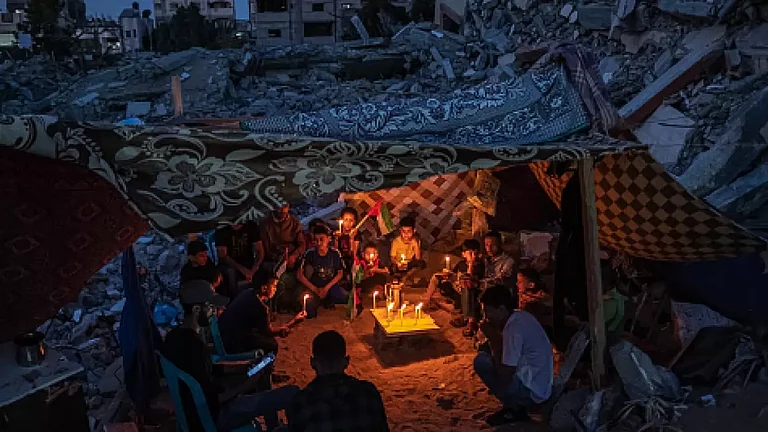The Israeli military on Thursday acknowledged a string of errors in its response to Hamas attacks last October 7, including slow response times and disorganisation, as it released the results of its first investigation into failures during the assault that triggered the war in Gaza.
The report focused on the border community of Be'eri, where over 100 people were killed and more than 30 others taken hostage by Hamas.
“The army failed in its mission to protect the residents of Kibbutz Be'eri,” the military's chief spokesman, Rear Adm. Daniel Hagari, said in a televised address. “It is painful and difficult for me to say that.”
Also Read:
Investigators “determined that, based on the information reviewed and to the best of their understanding, no civilians inside the building were harmed by tank shell fire," the report said, though it said two Israeli civilians were hit by shrapnel outside the building. One of those civilians died, according to the man's wife.
The report also pointed to delays of several hours in the arrival of military forces and said forces waited outside the kibbutz into the afternoon as residents were being killed, not understanding the severity of the situation.
The Israeli army has come under heavy criticism from Palestinians and human rights groups, who say its investigations rarely result in punishment.
October 7 Attack
The surprise cross-border raid killed some 1,200 people, most of them civilians, and took 250 others hostage, in the deadliest attack in Israel's 76-year history. The attack, in which several thousand Hamas militants stormed across the border without resistance, revealed grave shortcomings in the army's readiness, its intelligence assessments and policies set by political leaders toward Gaza.
An Israeli offensive launched in response to the attack has killed over 38,000 Palestinians, according to local health authorities, displaced over 80 per cent of the territory's people and triggered a humanitarian disaster in Gaza. Israel is now facing war crimes and genocide allegations in international courts.
The army has launched multiple investigations into the failures of Oct. 7, and the head of military intelligence has resigned. Several other commanders have apologised and taken responsibility for their failures.
But Prime Minister Benjamin Netanyahu has rejected repeated calls for an official state investigation, even as the war enters its 10th month.
Netanyahu has said an investigation cannot be conducted while the country is focused on its war against Hamas and says all questions will be answered at the appropriate time.
Israeli Army Withdraws From Shijaiyah
Palestinians returned to breathtaking scenes of destruction in the Gaza City district of Shijaiyah after Israeli troops withdrew, ending a two-week offensive there. Civil defence workers said Thursday that so far, they had found the bodies of 60 people in the rubble.
The Israeli military has invaded Shijaiyah several times in the nine-month war against Hamas militants in Gaza. Families who fled the assault ventured back into Shijaiyah to see the condition of their homes or salvage whatever they could.
Nearly every building was flattened to rubble for block after block, leaving giant piles of concrete and twisted rebar. Here and there, grey gutted concrete frames still stood a few stories high. The ever-present buzzing sound of Israeli military drones hung in the hot summer air as people on bicycles or horse-drawn carts made their way over dirt paths where the streets had apparently been bulldozed away.
Sharif Abu Shanab found his family's four-story building collapsed. “I can't enter it. I can't take anything out of it, not even a can of tuna. We have nothing, no food or drink,” he said.
Since fleeing the district, his family sleeps in the streets, he said. “Where do we go and to whom? … We have no home or anything,” he said in despair. “There's only one solution, hit us with a nuclear bomb and relieve us of this life.”
(With AP Inputs)


























